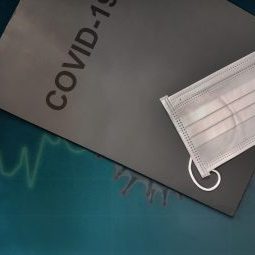 An overview of the premises of the „anti-crisis shield”, i.e. actions to support the polish economy during the fight against the covid-19 pandemic.
An overview of the premises of the „anti-crisis shield”, i.e. actions to support the polish economy during the fight against the covid-19 pandemic.
On Tuesday, March 31, 2020, the regulations regarding measures to combat the negative effects of the SARS-COV-2 pandemic were published in the Journal of Laws. Maintaining business liquidity and protecting employment are the main objectives of the package of acts.
Below we present the most important of the adopted tax and legal solutions.
TAX ASPECTS
PIT/CIT
- EXTENSION OF THE DEADLINE FOR SUBMITTING CIT-8 AND SOME OTHER FORMS
The deadline for submitting the annual CIT-8 tax return and paying the tax for 2019 for all corporate income tax payers (whose tax year started after 31 December 2018 and ended before 1 April 2020) was postponed from March 31 to May 31, 2020. In the case of NGOs, the declaration can be submitted until July 31, 2020. Additionally, the deadlines for submitting the ORD-U or IFT-2R forms were extended until the end of the 5th month following the end of the tax year.
- RETROACTIVE LOSS SETTLEMENT
Entrepreneurs who will suffer a loss in 2020 in connection with COVID-19 will be able to reduce their income from non-agricultural business activities for the previous year to the amount of this loss (however, not exceeding PLN 5 million) The new rules of loss deduction will apply only to those taxpayers who, in the indicated period, will generate at least 50% less revenue from business activity than the revenue generated from that activity in 2019.
-
EXTENDED DEADLINE FOR PAYMENT OF TAX ADVANCES FROM SALARY
In the case of tax advances collected in March and April 2020 from salaries paid by employers, the obligation to pay has been deferred to June 1, 2020, provided that the payers (employers) have suffered negative economic consequences due to COVID-19. This regulation applies accordingly to payments under contracts of mandate and contracts of specific work.
- EXCLUSION OF THE SO-CALLED BAD DEBT RELIEF
The regulations provide for an exemption from the obligation to apply the provisions on the so-called bad debts of PIT and CIT taxpayers, who are obliged to increase their income, which is the base for calculating monthly (quarterly) advances due in 2020, by the liabilities not paid on time. This exemption will be available only to those taxpayers whose revenues in the settlement periods of 2020 (monthly or quarterly) compared to the corresponding periods in 2019 will decrease by at least 50%. Liabilities that were not settled during the year before the submission of the annual return for 2020 will be included by taxpayers in their annual return.
- ONE-OFF DEPRECIATION OF FIXED ASSETS ACQUIRED FOR COMBATING COVID-19
Entrepreneurs will be able to make one-off depreciation write-offs on the initial value of fixed assets, purchased in order to produce goods related to combating COVID-19 and entered in the register of fixed assets and intangible assets in 2020. The catalogue of goods includes: protective masks, respirators, disinfectants, medical protective clothing, shoe protectors, gloves, glasses, goggles, disinfectants and hand hygiene products.
- DONATIONS FOR COMBATING COVID-19
Entrepreneurs will be able to include donations made for combating COVID-19 in their tax returns. It will be possible to deduct the donations (in cash or in kind) made to entities performing health care activities, including sanitary transport, as well as those made to the Material Reserves Agency and the Central Sanitary and Anti-Epidemic Reserves Base.
If these donations are made by entrepreneurs before April 30, 2020, an amount corresponding to 200% is deducted, in May 2020, an amount equal to 150% is deducted and from June 1, 2020 to September 30, 2020, an amount equal to the value of the donation will be deducted. The full amount of the donation will be subject to an income tax deduction, provided that it is documented by a proof of payment to the recipient’s payment account or bank account and, in the case of in-kind donations, by the recipient’s declaration of acceptance and a proof of value and identification of the donor.
- RELIEF FOR R&D ACTIVITIES AIMED AT COMBATING COVID-19
Eligible costs incurred in 2020 for research and development activities aimed at developing products necessary for counteracting COVID-19 will be deductible by entrepreneurs from the income that is the base for calculating the advance tax payment.
- INCOME FROM QUALIFIED INTELLECTUAL PROPERTY RIGHTS RELATED TO COMBATING COVID-19
Entrepreneurs who have obtained eligible income from qualified intellectual property rights used to counteract COVID-19 may apply a 5% tax rate to the taxation of such income during the current tax year when calculating income tax advances.
- EXTENDED DEADLINE FOR PAYMENT OF COMMERCIAL REAL ESTATE TAX
The deadline for the payment of the tax on buildings for March-May 2020 was extended to July 20, 2020. In order to be eligible to pay the tax later, the taxpayer must have suffered negative economic consequences due to COVID-19 and the taxpayer’s income is at least 50% lower than in the corresponding month of the previous tax year.
- DEFERRAL OF THE DEADLINE FOR SUBMITTING TRANSFER PRICING INFORMATION FOR SELECTED TAXPAYERS
The deadline for submitting information on transfer pricing documentation was extended until the end of September. However, it will only apply to taxpayers whose tax year or financial year started after December 31, 2018 and ended before December 31, 2019
VAT
- NEW JPK_VAT – NEW DEADLINE
The new JPK_VAT form for large businesses is to become effective as of July 1, 2020 (originally intended for April 1, 2020).
- NEW VAT RATE MATRIX
The date of entry into force of the new matrix of VAT rates was postponed from April 1 to July 1, 2020. In the meantime, the Polish Classification of Goods and Services (PKWiU 2008) will continue to apply for VAT purposes. In turn, Binding VAT Rate Statement (WIS) issued until June 30, 2020 will provide taxpayers with protection for taxable transactions carried out from July 1, 2020.
- ELECTRONIC RECEIPTS
Taxpayers will be entitled to issue receipts in electronic form upon the buyer’s consent.
- EXTENSION OF THE DEADLINE FOR REPORTING PAYMENTS OUTSIDE THE WHITELIST OF VAT TAXPAYERS
The deadline for reporting payments to an account outside the whitelist (for transactions worth over PLN 15,000) to the Head of the National Revenue Administration (KAS) was extended from 3 to 14 days. The 14-day term is only valid during the period of the epidemic emergency or the state of epidemic announced due to COVID-19.
TAX PROCEDURES
- SUSPENSION OF PROCEDURAL AND JUDICIAL TIME LIMITS
During a state of epidemic emergency or a state of epidemic announced due to COVID-19 the course of procedural and judicial time limits was suspended. This applies to court proceedings (including administrative court proceedings), enforcement proceedings, criminal proceedings, penal fiscal proceedings, misdemeanor cases, administrative proceedings, proceedings and inspections under the Tax Ordinance and customs and fiscal inspections.
- MANDATORY DISCLOSURE RULES
Mandatory disclosure rules of tax arrangements will be suspended for the duration of the state of the epidemic or epidemic emergency (but no longer than until June 30, 2020).
- DELEGATING TASKS OF THE NATIONAL REVENUE ADMINISTRATION (KAS)
In case of the introduction of a state of natural disaster, a state of the epidemic emergency, or a state of the epidemic, the size of which prevents the officers from performing their tasks, the Minister of Finance will be able to determine, by way of an ordinance, the tasks of the KAS, which do not require to be performed exclusively by officers, as well as the period of their performance. Consequently, the tasks of the KAS may be performed by other persons designated by the Minister in an ordinance.
- EXTENDED TERM FOR ISSUING TAX INTERPRETATIONS
Entrepreneurs will wait three months longer to receive a response to the request for an individual interpretation of tax law by the Head of the National Revenue Information Service (KIS) – that is, a total of six months. This applies to requests that have not been considered by the date of the special-purpose act becoming effective, as well as those submitted after its entry into force. Moreover, the Minister of Finance will be able to extend this deadline once for another three months.
OTHER ISSUES
- PROPERTY TAX
Local authorities (at the level of gmina) have the possibility to introduce exemptions from property tax for a part of 2020 for entrepreneurs whose liquidity has been negatively impacted by COVID-19. Furthermore, gmina authorities were provided with a possibility to extend the deadlines for payment of property tax installments, payable in April, May and June 2020, but until no longer than September 30, 2020.
- TAX ON RETAIL SALES
The suspension of the entry into force of the Act on Retail Sales Tax was upheld (postponed from July 1, 2020 to January 1, 2021).
- EXTENSION FEE AND INTEREST
The extension fee charged when granting tax reliefs and deferrals of taxes and social security contributions: deferrals of payment date, payment in installments or redemption under the provisions of the Tax Ordinance, was abolished. The formal condition is to submit a relevant application to the applicable tax authorities and ZUS offices. The Minister of Finance may also, by means of an ordinance, waive, in whole or in part, the collection of interest on tax arrears, specifying the type of tax, the territorial scope of the waiver and the period in which the waiver shall occur.
- SIMPLIFICATION OF THE PROCEDURE FOR THE PRODUCTION OF EXCISE GOODS
When an entity subject to customs and fiscal inspection performs activities in the area of production, movement and use of excise goods, in particular their production, refining, processing, contamination, bottling, receiving, storing, issuing, transporting and disposing of them, as well as in the area of use and marking of those goods with excise tax marks during the period of an epidemic emergency or a state of epidemic, the head of the customs and fiscal office will be able to waive, among others, the presence of the inspector when performing activities subject to customs and fiscal inspection.
- CENTRAL REGISTER OF REAL BENEFICIARIES (CRBR)
The deadline for submitting notifications to the Central Register of Real Beneficiaries will be postponed. Companies were to submit the notification by April 13, but the Ministry of Finance will postpone this term by 3 months, i.e. until July 13, 2020.
- EXTENSION OF DEADLINES FOR FINANCIAL REPORTING
Obligations related to, i.a. preparing financial statements, auditing them by audit companies, approving them and making them available to the public were deferred by 3 months (by 2 months for entities subject to the supervision by the Polish Financial Supervision Authority (KNF)).
LEGAL ASPECTS
CONSTRUCTION LAW
- EXEMPTION FROM THE PROVISIONS OF THE CONSTRUCTION LAW WITH RESPECT TO CONSTRUCTION WORKS/CHANGE OF THE USE OF A BUILDING AS A COVID-19 COUNTERMEASURE (ARTICLE 12 OF THE ACT)
Pursuant to the Act, if an immediate action to combat the virus is required, the provisions of the Construction Law, the Spatial Planning and Land Development Act and the Act on Monument Protection will not apply to the design, construction, reconstruction, overhaul, maintenance and demolition of buildings, including changes of their use. The executive regulations to the above mentioned acts, including the regulation on technical conditions to be met by buildings and their location, will also not apply.
In the case of conducting construction works and changing the use of a building, the investor will be obliged to immediately inform the architectural and the construction administration body. If the performance of such works will pose a hazard to people’s health and life, the above authority, by means of a decision subject to immediate execution, will immediately set the requirements to safeguard their performance.
If the works are carried out in such a way that they are subject to the obligation to obtain a building permit in accordance with the construction law, the investor will be obliged to ensure the management and supervision of the works by a person holding building license in relevant fields.
LEASE AGREEMENT
- SUPPORT FOR TENANTS OPERATING IN LARGE AREA RETAIL PROJECTS, WHOSE ACTIVITY HAS BEEN LIMITED OR PROHIBITED (ARTICLE 15E OF THE ACT)
In the period when it is prohibited to operate in retail schemes with a sales area of more than 2,000 m2 in accordance with the relevant regulations, the mutual obligations of the parties to the lease, tenancy or other similar agreement, under which the commercial space is to be used, expire.
Upon lifting of the ban, the tenant shall submit to the landlord an unconditional and binding offer of will to extend the lease agreement on the existing terms and conditions, for the period of the ban plus six months. The offer shall be submitted within three months from the date of lifting the ban. The provision concerning the termination of the lease agreement will cease to bind the landlord when the deadline for submitting the tenant’s offer expires ineffectively (i.e. three months from the date of lifting the ban).
According to the intention of the lawmakers, the introduced regulations do not violate the provisions of the Civil Code governing states in which legal restrictions on the freedom of business activity are introduced.
- AUTOMATIC RENEWAL OF LEASE AGREEMENTS (ARTICLE 31S OF THE ACT)
Lease agreements concluded before April 1, 2020, under which the lease term will expire between April 1, 2020 and June 30, 2020, shall be extended on the terms and conditions applicable until June 30, 2020. The only requirement is to submit a declaration of will of the tenant in this respect, at the latest on the date of the expiration of the term of this agreement.
The extension of the lease agreement shall not apply to those tenants who, before the amendment comes into force, for at least 6 months of the lease duration, were in default of payment of fees related to the premises for at least one settlement period, if the aggregate value of the arrears exceeds the rent for one month.
The automatic renewal of the lease agreement shall not apply to tenants who, during the lease term:
- used the premises in a manner inconsistent with the agreement or the purpose of the premises,
- neglected the obligations associated with the premises, resulting in damage to the premises,
- leased, sublet or handed over the premises (or their part) for free use without the required written consent of the landlord.
- NO POSSIBILITY TO TERMINATE THE LEASE AGREEMENT AND CHANGE THE RENT AMOUNT (ARTICLE 31T OF THE ACT)
Until June 30, 2020, it will be impossible to terminate the tenant’s lease agreement or the amount of rent.
ANNUAL FEE FOR PERPETUAL USUFRUCT
- EXTENDED DEADLINE FOR PAYMENT OF THE ANNUAL PERPETUAL USUFRUCT FEE (ARTICLE 15J OF THE ACT)
The deadline for payment of the annual perpetual usufruct fee for 2020 will be postponed until June 30, 2020.
POSSIBILITY TO REDEEM OR CHANGE THE RULES FOR COLLECTING FEES FOR LEASE, TENANCY OR USE DUE UNDER THE REAL ESTATE MANAGEMENT ACT
- POSSIBILITY TO REDEEM, DEFER PAYMENT OR SPREAD THE FEES FOR LEASE, TENANCY OR USE IN INSTALLMENTS (ART. 15 ZZZE, ART. 15 ZZZF, ART. 15ZZZG OF THE ACT)
Cash receivables referred to in the Real Estate Management Act for letting the real estate for lease, tenancy or use, falling for the period of the epidemic emergency or the state of the epidemic, may be remitted in whole or in part or their repayment may be postponed or divided into installments by the Starost or mayor of the city with poviat rights, performing government administration tasks, without the consent of the Voivode.
The authority constituting local government units may, by way of a resolution, decide to waive the collection of civil law receivables due to a local government unit or its organizational units in relation to entities whose financial liquidity has deteriorated as a result of suffering negative economic consequences due to COVID-19, which will submit a request to waive the collection of such receivables.
Until the authority constituting the local government units determines the rules of granting reliefs for civil law receivables due to local government units or their organizational units for the period of the epidemic emergency or the state of the epidemic, these receivables may be remitted, their repayment dates may be postponed or their payment may be spread into installments by the head of the commune, the mayor, the president of the city, the district board or the Voivodeship board.
LOOSENING OF THE SUNDAY TRADING BAN
- LOOSENING OF THE SUNDAY TRADING BAN (ART 15l OF THE ACT)
During an epidemic emergency or a state of the epidemic or within 30 days following their revocation, the ban on trading on Sundays shall not apply to activities relating to trade in essential goods.
SUSPENSION OF TIME LIMITS
- TIME LIMITS PROVIDED FOR IN THE ADMINISTRATIVE LAW (ARTICLE 15ZZR OF THE ACT)
During the epidemic emergency or the state of the epidemic, the time limits provided for in administrative law:
- compliance with which is required in order to be granted legal protection before a court or authority,
- required for a party to perform activities that shape its rights and obligations,
- the limitation period,
- non-compliance with which results in the expiration or modification of rights in rem and claims and liabilities, and in a delay,
- final time limits, non-compliance with which entails negative consequences for the party,
- for entities or organisational units subject to registration in a relevant register to perform the activities, which result in the obligation to submit an entry to that register, as well as time limits for the performance by those entities of their obligations under the regulations determining their legal system
shall not commence, and those that have commenced, are suspended for that period.
The suspension of the commencement and the suspension of the time limits shall not apply to the time limits in the cases referred to in Article 14a (5) of the Act, time limits for the election or appointment of bodies whose term of office is specified in the Constitution of the Republic of Poland, time limits for elections to bodies of local government units and time limits for legal motions and questions to the Constitutional Tribunal.
- PROCEDURAL AND JUDICIAL TIME LIMITS (ARTICLE 15 ZZS OF THE ACT)
During the epidemic emergency or the state of the epidemic, the procedural and judicial time limits with respect to:
- court proceedings, including administrative court proceedings,
- enforcement proceedings,
- criminal proceedings,
- penal fiscal proceedings,
- misdemeanour proceedings,
- administrative proceedings,
- proceedings and inspections under the tax ordinance,
- customs and fiscal inspections,
- proceedings in cases referred to in Article 15f ( 9) of the Gambling Act of 19 November 2009,
- other proceedings conducted under the Acts
shall not commence, and those that have commenced, are suspended for that period.
The suspension of the commencement and the suspension of the time limits shall not apply to the time limits in the cases referred to in Article 14a (4 and 5) of the Act, time limits for the election or appointment of bodies whose term of office is specified in the Constitution of the Republic of Poland, time limits for elections to bodies of local government units and time limits for legal motions and questions to the Constitutional Tribunal.
The suspension of the time limits shall not apply to inspections and proceedings indicated in Section 5 (3) (3) and Section 6 (2) of the Public Procurement Law.
- THE TIME-LIMITS FOR THE SILENT SETTLEMENT OF A CASE, ISSUING A DECISION, EXPRESSING A POSITION (ARTICLE 15 ZZS OF THE ACT)
Time limits:
- for silent settlement of a case,
- in any other case where the failure of the authority to express its objection, to issue a decision, order or other ruling entitles a party or participant in the proceedings to take action, perform an act, or affect the rights and obligations of the party or participant in the proceedings,
- for the Authority to express its position or to issue an individual interpretation, with the exception of the individual interpretation referred to in the Tax Ordinance
shall not commence, and those that have commenced, are suspended for the time of the epidemic emergency or the state of the epidemic.
PUBLIC PROCUREMENTS
- IMPACT OF COVID-19 ON THE PERFORMANCE OF PUBLIC PROCUREMENT CONTRACTS – DISCLOSURE REQUIREMENTS (ARTICLE 15R OF THE ACT)
The parties to a public procurement contract are obliged to inform each other immediately of the impact of the circumstances surrounding the occurrence of COVID-19 on the performance of the contract. The information should be accompanied by statements or documents, especially those related to:
a) absence of employees or persons providing paid employment on a basis other than that of the employment contract who participate or might participate in the performance of the contract,
b) decisions issued by the Chief Sanitary Inspector or the State Sanitary Inspector, acting under the former’s authority, in connection with combating COVID-19, requiring the contractor to take certain preventive or control measures,
c) instructions issued by a Voivode or decisions issued by the Prime Minister in connection with combating COVID-19,
d) suspension of deliveries of products, product components or materials, difficulties in access to equipment or difficulties in the performance of transport services,
e) circumstances referred to in points a) – d) above, in so far as they concern a subcontractor or further subcontractor.
- EXCLUSION OF THE APPLICATION OF THE PUBLIC PROCUREMENT LAW WITH RESPECT TO CONTRACTS AWARDED BY BANK GOSPODARSTWA KRAJOWEGO
The application of the provisions of the Public Procurement Law of January 29, 2004 to contracts awarded by Bank Gospodarstwa Krajowego, related to the performance of tasks related to the service of funds created, entrusted or transferred to Bank Gospodarstwa Krajowego on the basis of separate acts and related to the performance of government programmes or other programmes implemented with public funds, which concern support instruments necessary to counteract the negative economic effects of COVID-19.
- POSSIBILITY OF AMENDING A PUBLIC PROCUREMENT CONTRACT (ARTICLE 15R OF THE ACT)
The Awarding Entity, having ascertained that the circumstances related to the occurrence of COVID-19 may affect or influence the proper performance of the public procurement contract, may, in agreement with the contractor, amend the contract referred to in Article 144(1)(3) of the Public Procurement Law, in particular by:
- changing the deadline for performance of the contract or parts thereof, or temporarily suspending performance of the contract or parts thereof,
- changing the way in which supplies, services or works are carried out,
- changing the contractor’s scope of performance and the corresponding contractor’s remuneration
– provided that the price increase caused by each subsequent change does not exceed 50% of the original contract value.
If the agreement expressly provides for the possibility of making more favourable amendments than would result from the circumstances indicated above, the awarding entity may amend the agreement in a manner more favourable to the contractor, however, with the stipulation that the circumstances related to the occurrence of COVID-19 indicated above cannot constitute an independent basis for exercising the contractual right to withdraw from the contract.
A party to a public procurement contract shall be obliged to take into account, in its position addressed to the other party to that contract, the impact of circumstances related to the occurrence of COVID-19 on its proper performance and the impact of an amendment to that contract on the legitimacy of establishing and pursuing penalties or damages, or their amount, provided that the contract contains provisions on contractual penalties or compensation for liability for its non-performance or improper performance due to the circumstances indicated.
The possibility to amend the contract related to the performance of a public procurement due to circumstances related to the occurrence of COVID-19 was also granted to the contractor and subcontractor. In particular, they may amend the timeframe for performance of the contract or part of it, temporarily suspend performance of the contract or part of it, change the way in which the contract is performed or change the scope of mutual services. If the amendment to a public procurement contract between the contractor and the awarding entity involves the part of the contract entrusted to a subcontractor, the contractor and the subcontractor shall agree to an appropriate amendment to the contract between them so that the terms and conditions of the contractor and the subcontractor are no less favourable in this respect than the terms and conditions of the contractor’s contract with the awarding entity amended as a result of COVID-19.
COMMERCIAL COMPANIES CODE
- CHANGES IN THE MANNER OF CONDUCTING MEETINGS OF THE MANAGEMENT BOARD AND THE SUPERVISORY BOARD AND IN THE MANNER OF VOTING, AS WELL AS CHANGES IN THE MANNER OF PARTICIPATION IN THE SHAREHOLDERS’ MEETING IN A LIMITED LIABILITY COMPANY (ARTICLE 27 OF THE ACT)
A management board meeting may be attended by means of distance communication, unless the limited liability company deed states otherwise. It will also be possible to adopt resolutions in this manner, unless the company deed states otherwise. It shall also be possible for the members of the management board to participate in adopting resolutions of the management board by casting their vote through another member of the management board, unless the company deed states otherwise.
A supervisory board meeting may be attended by means of distance communication, unless the company deed states otherwise. It will also be possible to adopt resolutions in this manner, unless the company deed states otherwise. It shall also be possible for the members of the supervisory board to participate in adopting resolutions of the supervisory board by casting their vote through another member of the supervisory board, unless the company deed states otherwise.
Voting in writing shall not apply to matters placed on the agenda at a meeting of the supervisory board.
The shareholders’ meeting may also be attended by means of electronic communication, unless the company deed states otherwise. Such attendance shall include in particular:
- real-time two-way communication of all persons attending the shareholders’ meeting, which allows them to speak during the meeting from a location other than that of the shareholders’ meeting,
- exercising the right to vote in person or by proxy before or during the shareholders’ meeting.
Detailed rules of participation in the shareholders’ meeting using electronic means of communication will be specified in the regulations adopted by the supervisory board, or in the absence thereof by the shareholders. The regulations may be adopted by way of a resolution of the partners without holding a meeting, if the partners representing an absolute majority of votes agree in writing to the provisions of these regulations.
- CHANGES IN THE MANNER OF CONDUCTING MEETINGS OF THE MANAGEMENT BOARD AND THE SUPERVISORY BOARD AND IN THE MANNER OF VOTING, AS WELL AS CHANGES IN THE MANNER OF PARTICIPATION IN THE SHAREHOLDERS’ MEETING IN A JOINT STOCK COMPANY (ARTICLE 27 OF THE ACT)
A management board meeting may be attended by means of distance communication, unless the articles of association state otherwise. It will also be possible to adopt resolutions in this manner, unless the articles of association state otherwise. It shall also be possible for the members of the management board to participate in adopting resolutions of the management board by casting their vote through another member of the management board, unless the articles of association state otherwise.
A supervisory board meeting may be attended by means of distance communication, unless the articles of association state otherwise. It shall also be possible to adopt resolutions in this manner, unless the articles of association state otherwise. It shall also be possible for the members of the supervisory board to participate in adopting resolutions of the supervisory board by casting their vote through another member of the supervisory board, unless the articles of association state otherwise. Voting in writing shall not apply to matters placed on the agenda at a meeting of the supervisory board.
The general meeting of shareholders may also be attended by means of electronic communication, unless the articles of association state otherwise. Such attendance shall include in particular:
- real-time two-way communication of all persons attending the general meeting of shareholders, which allows them to speak during the meeting from a location other than that of the general meeting of shareholders,
- exercising the right to vote in person or by proxy before or during the general meeting of shareholders.
Rules for participation in the general meeting of shareholders using electronic means of communication will be specified in the regulations adopted by the supervisory board.
A publicly listed company is obliged to ensure real-time transmission of the General Meeting. This is without prejudice to the disclosure requirements set out in the regulations on public offerings and conditions for introducing financial instruments to the organized trading system and on publicly listed companies.
If the voting right is exercised using electronic means of communication, the company shall immediately send the shareholder an electronic confirmation of receipt of the vote. At the shareholder’s request submitted within a maximum of 3 months from the date of the general meeting, the company shall send the shareholder or their proxy a confirmation that their vote has been properly registered and counted, unless such confirmation has been provided to the shareholder or their proxy earlier.
Download alert in PDF version – HERE
___
Contact our experts:
Should you be interested in the above solutions, we invite you to contact experts from TPA Poland and Baker Tilly Woroszylska Legal, who will provide professional support in each of the areas mentioned above. The team of TPA Poland’s advisors and Baker Tilly Woroszylska Legal’s lawyers combines all the required competences for this type of consulting.
TPA Poland |
|||
 |
Managing Partner Tax Advisory |
 |
Associate Partner Tax Advisory |
Baker Tilly Woroszylska Legal |
|||
 |
Managing Partner Warsaw office |
 |
Partner Poznań office |
 |
Partner Wrsaw office |
||
Read also:
- proposed solutions of Ministry of Finances,
- granting public aid,
- changes in the functioning of the polish development fund,
- employment issues,
- extended deadline for ORD-U and IFT-2R,
- support for taxpayers,
- simplifications in RET,
- protection of the energy sector, including development of RES projects.,
- new solutions for entepreneurs under the „Anti-Crisis Shield 2.0”,
- financial liquidity in times of pandemic,
- transfer pricing in the face of the economic crisis.

